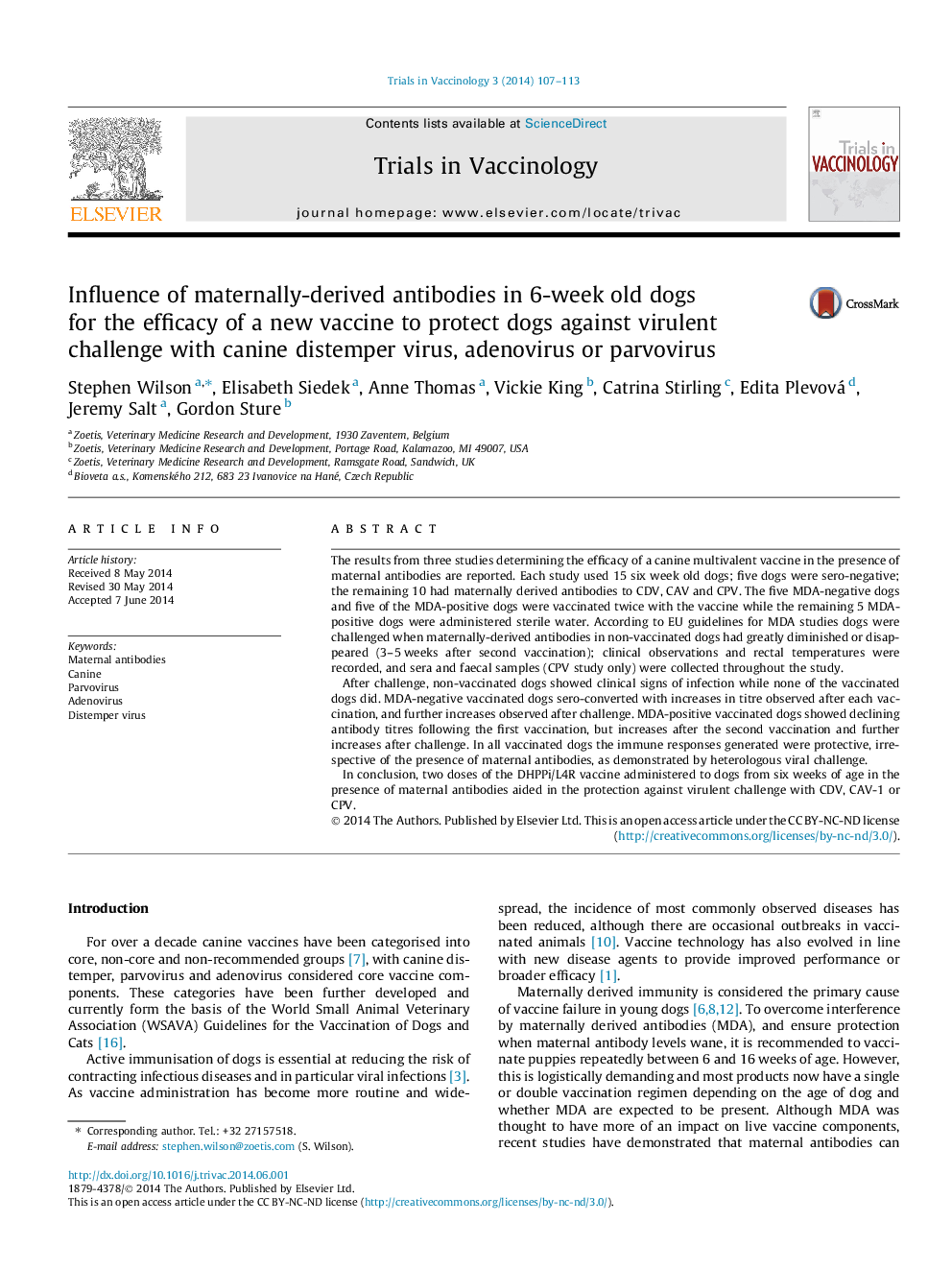| Article ID | Journal | Published Year | Pages | File Type |
|---|---|---|---|---|
| 2474414 | Trials in Vaccinology | 2014 | 7 Pages |
The results from three studies determining the efficacy of a canine multivalent vaccine in the presence of maternal antibodies are reported. Each study used 15 six week old dogs; five dogs were sero-negative; the remaining 10 had maternally derived antibodies to CDV, CAV and CPV. The five MDA-negative dogs and five of the MDA-positive dogs were vaccinated twice with the vaccine while the remaining 5 MDA-positive dogs were administered sterile water. According to EU guidelines for MDA studies dogs were challenged when maternally-derived antibodies in non-vaccinated dogs had greatly diminished or disappeared (3–5 weeks after second vaccination); clinical observations and rectal temperatures were recorded, and sera and faecal samples (CPV study only) were collected throughout the study.After challenge, non-vaccinated dogs showed clinical signs of infection while none of the vaccinated dogs did. MDA-negative vaccinated dogs sero-converted with increases in titre observed after each vaccination, and further increases observed after challenge. MDA-positive vaccinated dogs showed declining antibody titres following the first vaccination, but increases after the second vaccination and further increases after challenge. In all vaccinated dogs the immune responses generated were protective, irrespective of the presence of maternal antibodies, as demonstrated by heterologous viral challenge.In conclusion, two doses of the DHPPi/L4R vaccine administered to dogs from six weeks of age in the presence of maternal antibodies aided in the protection against virulent challenge with CDV, CAV-1 or CPV.
